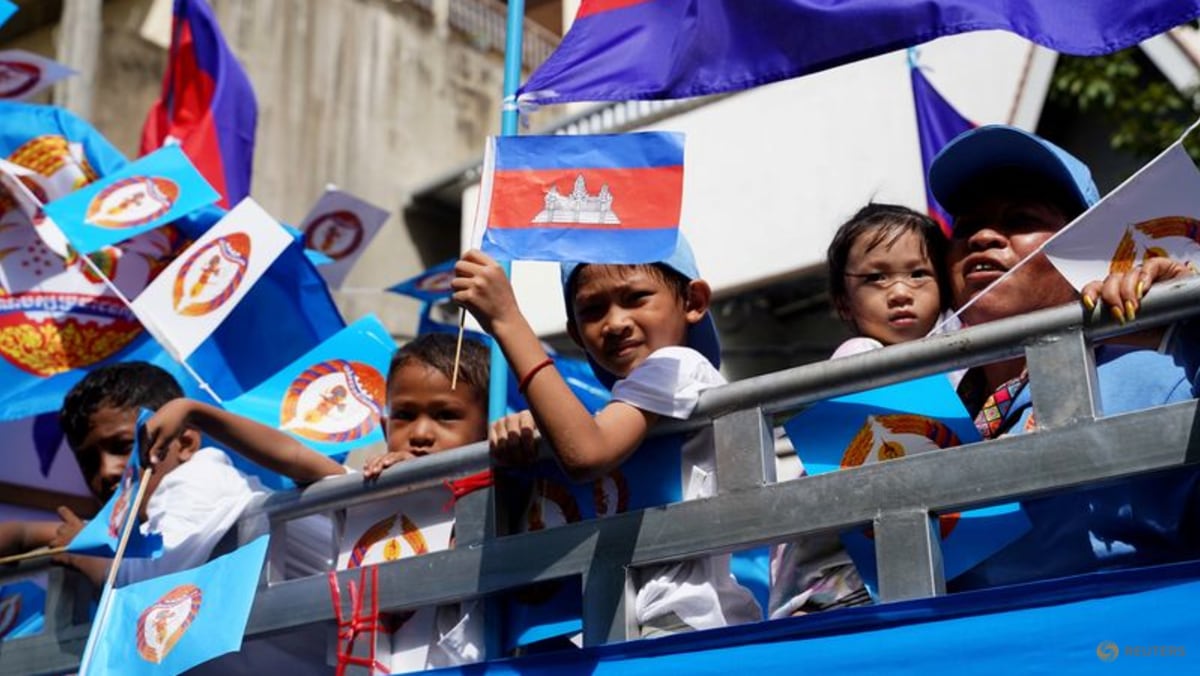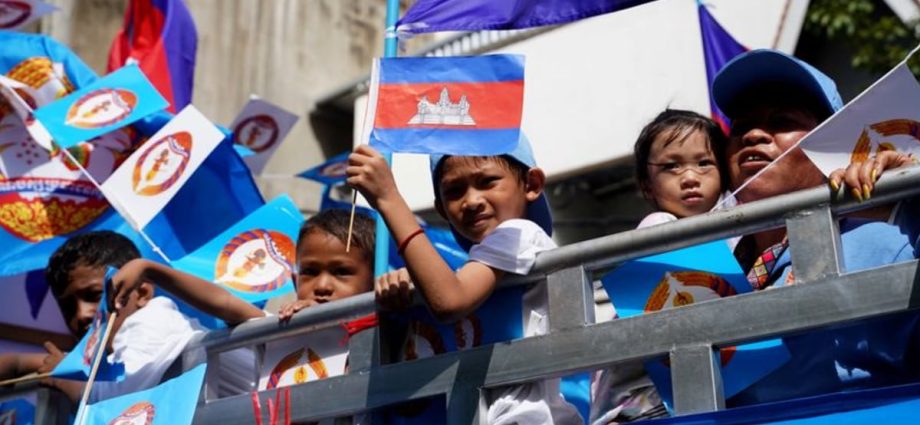
Cambodia holds an election on Sunday (Jul 23) that is almost certain to be won by the ruling Cambodian People’s Party (CPP) of Prime Minister Hun Sen, extending its nearly four-decade grip on power.
WHAT WILL HAPPEN ON SUNDAY?
About 9.7 million of Cambodia’s 16 million people are eligible to vote in the election for a national assembly. Polling stations will open from 7am (8am, Singapore time) until 3pm and a preliminary result is expected Sunday evening.
Aside from CPP, there are 17 parties running, but most are obscure and none have the clout or resources to mount a challenge to the ruling party, which won all 125 seats assembly seats in the 2018 election. A repeat of that is expected.
WHAT HAPPENED TO THE OPPOSITION?
CPP encountered its biggest challenge to its rule in the 2013 election when it won less than half of the votes, closely followed by the newly formed opposition Cambodia National Rescue Party (CNRP), reflecting CNRP’s popularity among the youth and trade unions and some disenchantment with CPP.
In the following years, CPP used its influence over courts and democratic institutions to hobble its rival, culminating in CNRP’s dissolution nine months before the 2018 election, for its alleged plot to overthrow Hun Sen’s government. The CNRP’s leader was arrested on treason charges.
Large numbers of opposition figures fled into exile and hundreds were convicted of crimes mostly in absentia in mass trials.
From CNRP’s ashes rose the Candlelight Party, but its members have endured a campaign of intimidation and harassment, according to human rights groups. The party was disqualified from the election on a technicality over a registration document and this week, two of its members were arrested for incitement after they urged voters to destroy their ballots.
IS THE CPP POPULAR?
The CPP’s ability to maintain peace, growth and stability after the 1970s Khmer Rouge genocide and ensuing civil war remains its biggest selling point, particularly in rural areas where many Cambodians have witnessed a relative transformation in what was once among the world’s poorest countries.
Under 70-year-old Hun Sen, Cambodia has achieved lower middle-income status, with improvements in health, education and infrastructure. Its textiles manufacturing sector, mainly for famous Western brands, has boomed, creating vital jobs, while the economy grew on average 7.7 per cent between 1998 and 2019.

